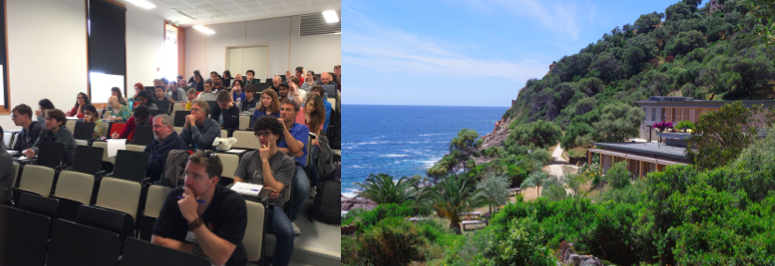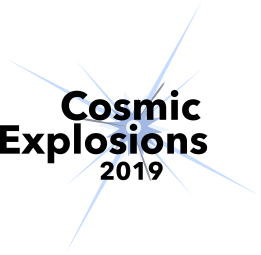
The most violent and energetic phenomena observed in our Universe are in their vast majority linked with objects in the “stellar graveyard”. These transient events can be associated with the collapse of a massive star (supernova and gamma-ray bursts), to accretion processes in binary systems that include a compact object (neutron star or black hole) or the coalescence of two of those compact sources; emitters of the gravitational wave signals recently detected. For historical reasons, “Cosmic Explosions” have been studied and presented at summer schools independently. Bridging the gap between different communities that are studying the various facets of a same family of objects would allow young researcher entering the field to see the global picture and the evolutionary link between them.
This school is organised in the context of the multi-messenger (photons, neutrinos, and gravitational waves) era and the large number of existing or upcoming telescopes to study the transient sky. This school will bring together international experts from different domains in order to prepare the future generation of young researchers to the revolution of time-domain, and multi-messenger astronomy.
The morning sessions will focus on theory and presentations of astrophysical objects, whereas the afternoon sessions will present the observational context and data analysis hands on sessions. Time slots will be arranged for PhD students and postdocs to present their current research and to carry out a research project in small groups during the school.
Registration is now closed.
The registration fees are 600 € and cover lodging, lunch, conference dinner, and excursion. The fees can be paid online by credit card or by wire transfer on the CNRS website:
You need to first create an account and then pay the fees.
Students planning to present a talk or poster will need to submit an abstract in pdf format specifying talk or poster in the title.
For students requesting financial support, please specify your research interests and how this school can help you carrying out your project.
The school is acknowledged as an “Ecole thématique du CNRS”, hence applicants under CNRS contract (permanent and non-permanent) will be exempted from the registration fee.
Activities during the School:
-
interactive hands-on sessions
-
small projects
-
student presentations
-
excursions
-
ample time for using the private beach after lunch
List of speakers:
Renaud Belmont, Marta Burgay, Frédéric Daigne, Stefano Gabici, Diego Götz, Karl Kosack, Norbert Langer, Nicolas Leroy, Sera Markoff, Ed Porter, Mickael Rigault, Henri Triou, Veronique Van Elewyck, Jacco Vink.
Logistics:
The school will take place in Cargèse, Corsica. The nearest airport is Ajaccio and a bus will be scheduled on Monday (May 27) at 3 pm, in order to collect and bring the participants to Cargèse. The Ajaccio airport is served from Paris Orly, Paris CDG, Nice and Marseille. It is highly recommended to tune your travel schedule to take the Cosmic Bus, due to the paucity of public transportation in Corsica. If you don't want to take the school bus, note that a taxi can be an expensive (> 100 €) alternative.
Organisers / LOC:
Fabio Acero, Volker Beckmann, Pascale Chavegrande, Diego Götz, Karl Kosack, Jerome Rodriguez, Stephane Schanne
For any inquiries please contact the director of the school Fabio Acero (@ cea.fr)



